In this era of technology where convenience is king and innovations are necessary, SaaS enabled marketplaces can be seen as a bright example of reliability and creativity.
SaaS marketplaces have become quite popular types of marketplace in recent days. The research says that:
Over the past seven years, the SaaS industry has increased by around 500%.
source: www.madx.digital
That is why would-be marketplace owners who are looking to provide a more user-friendly purchasing experience, should choose the SaaS enabled marketplace model.
To inspire them even further, we will be listing the top 10 SaaS enabled marketplace examples from around the world while talking about the definition, benefits, and future of SaaS marketplaces.
Let’s start with:
What Exactly is a SaaS Enabled Marketplace?
SaaS (Software-as-a-Service) is like renting software instead of buying it. You can just log into a website and start using the software. Examples: Gmail, Netflix, Dropbox, etc.
A marketplace is where buyers and sellers connect, facilitating transactions between them. Examples: Amazon, Etsy, eBay, etc.
A SaaS enabled marketplace is a digital platform that combines the best of both: a traditional marketplace and a SaaS platform.
The key characteristics of a SaaS marketplace are:
- SaaS-powered tools: Sellers have access to software tools like inventory management, order processing, customer relationship management (CRM), and financial management.
- Centralized platform: All transactions and interactions happen within a single platform.
- Efficiency: Streamlines operations for both buyers and sellers, saving time and resources.
- Scalability: Can accommodate a growing number of users and transactions.
These characteristics allow administrators and vendors to boost sales and provide superior services to their customers.
The Benefits of Using SaaS-Enabled Marketplaces
You may have already gotten the gist from the characteristics of the SaaS-enabled marketplaces that they can be highly beneficial for users.
For your convenience, here are some more benefits of using this type of marketplace-
1. Rapid Growth and Scalability
SaaS marketplaces can experience exponential growth. For example, Airbnb’s valuation soared from $1 billion in 2011 to over $100 billion in 2020, largely due to the network effect.
2. Increased User Engagement and Retention
SaaS marketplaces often boast higher user engagement. A study by McKinsey found that customers who have a positive online experience are 63% more likely to make repeat purchases.
3. Cost-Efficiency for Buyers and Sellers
Both buyers and sellers can benefit from cost reductions in a SaaS marketplace. Buyers can compare prices and find better deals, while sellers can reduce customer acquisition costs.
A report by Forrester Consulting found that companies using Saas-powered marketplaces saw an average of 20% reduction in sales costs.
4. Data-Driven Insights for Smart Decision Making
According to a survey by Gartner, data-driven organizations are 23 times more likely to acquire customers, retain customers, and increase profitability.
SaaS marketplaces generate vast amounts of data on user behavior, preferences, and market trends. This data can be leveraged to optimize product offerings, personalize experiences, and make informed business decisions. Companies that effectively utilize data-driven insights often outperform competitors.
5. Enhanced Customer Experience
A study by Salesforce found that 75% of customers say they expect companies to understand their needs and expectations.
SaaS marketplaces can provide a seamless and convenient customer experience. Features like personalized recommendations, easy checkout, and efficient customer support contribute to customer satisfaction.
Research indicates that companies with excellent customer experiences retain customers at a higher rate.
Now, lets see how the SaaS market has evolved over the years-
How SaaS Market has Changed Over the Years
All this talk, but is the SaaS marketplace industry evolving? Let’s find out.
According to Statista, there were 25000 SaaS companies in 2021. That number rose to 30,000 in 2023 and by the end of 2024, there will be around 72,000 SaaS companies in operation. The SaaS market is predicted to reach a valuation of $307 B by 2026.
However, this estimate doesn’t account for companies specializing in artificial intelligence, which could increase the number to 175,000.
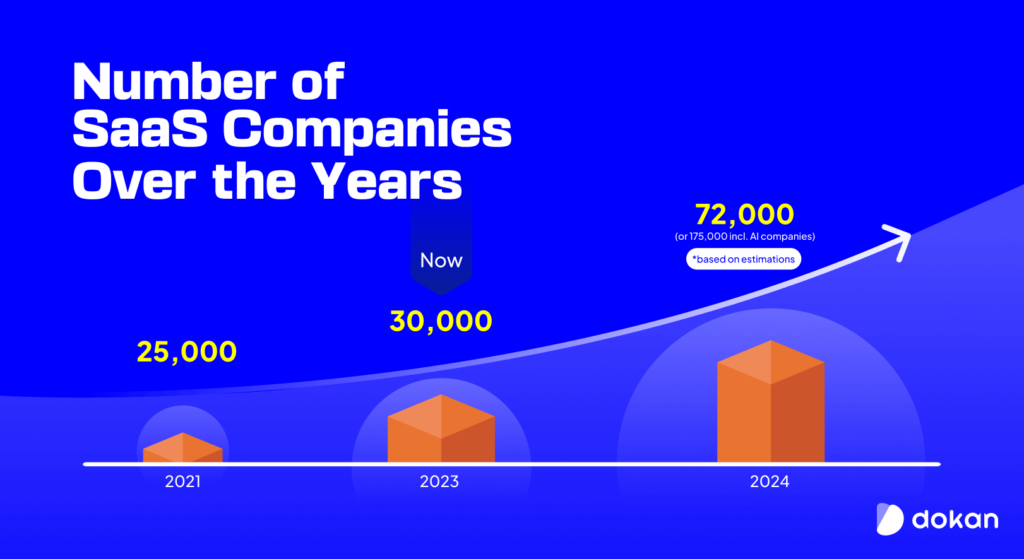
As per the findings in the report published by Verified Market Research, the global SaaS market had a valuation of USD 237.51 Billion in 2023, and it is expected to reach USD 908.24 Billion by 2030, growing at a CAGR of 18.7% during the forecast period of 2024–2030.
The report suggests that the SaaS market is experiencing growth due to the surge in demand for cloud-based solutions and the increasing adoption of mobile devices. Furthermore, the market is expanding due to the cost-effectiveness, scalability, and ease of deployment offered by SaaS solutions.
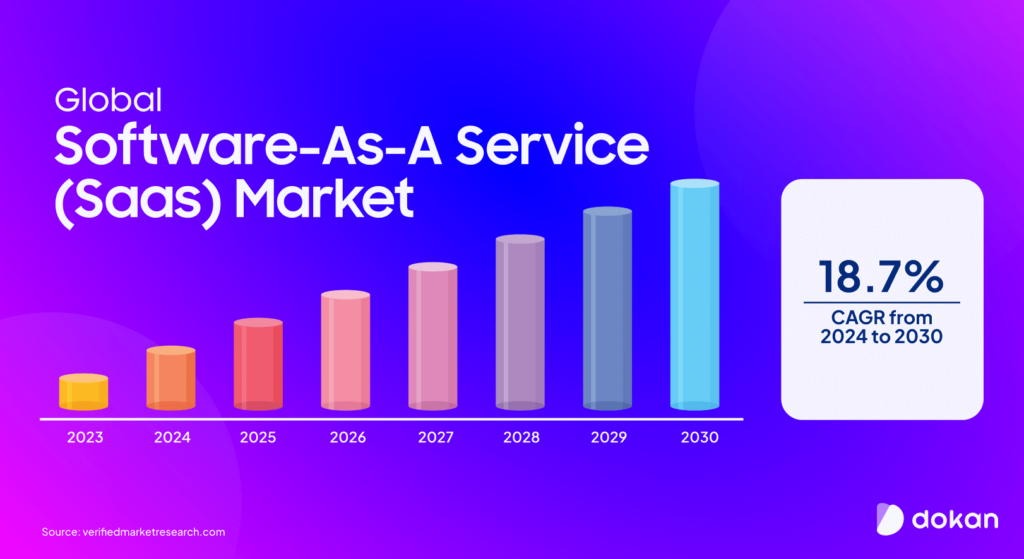
Here is a list of the top SaaS companies with the largest market share:
- Microsoft: 11.3%
- Salesforce: 10.2%
- SAP: 4.8%
- Oracle: 3.8%
- Google: 3.5%
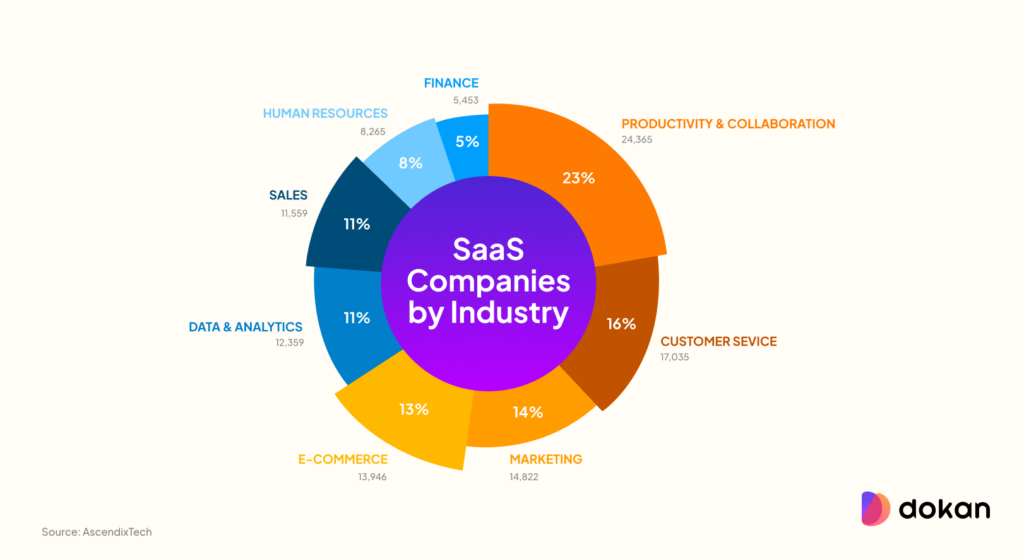
Not bad, right? The SaaS industry is heading in the right direction. Combined with the marketplace model, it has the merit of becoming a winning combination.
10 SaaS Enabled Marketplace Examples
Now for the fun part. We have searched and searched, found 10 of the most popular SaaS enabled marketplaces in the world.
They are-
- Treatwell
- Opentable
- Upwork
- Etsy
- Airbnb
- Xeneta
- Lawn Love
- Outdoorsy
- TaskRabbit
- Instacart
Let’s get to know them in detail-
1. Treatwell
Industry: Beauty and Wellness
Treatwell is a leading online platform connecting beauty and wellness consumers with businesses.
It operates as a SaaS-enabled marketplace, offering a comprehensive suite of tools for salons, spas, and other beauty establishments to manage appointments, customer relationships, marketing, and online booking.
The platform’s advanced features include online booking, appointment reminders, customer management, loyalty programs, and business analytics. For consumers, Treatwell provides a user-friendly interface to discover local beauty and wellness services, read reviews, compare prices, and book appointments effortlessly.
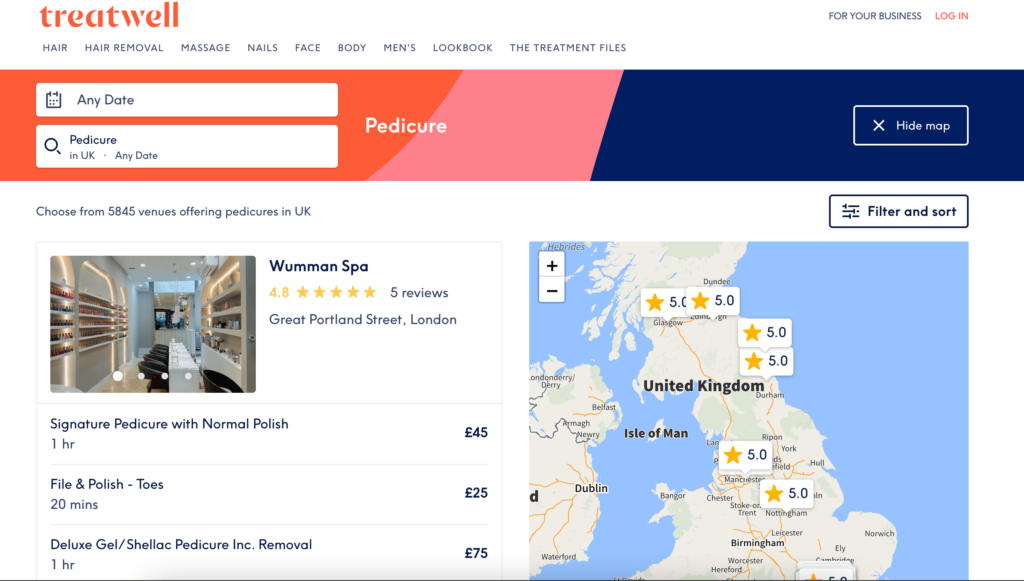
The Treatwell website looks very refreshing. Especially the section where you can find hairdressers, barbershops, messages, and beauty centers based on location. They also have their own newsletter where customers will find news, discounts, etc.
2. OpenTable
Industry: Restaurant Reservations
OpenTable is a widely used online restaurant reservation platform. It offers a SaaS-based solution for restaurants to manage their operations, increase customer satisfaction, and drive revenue.
The platform provides tools for managing reservations, waitlists, table assignments, customer relationship management (CRM), and analytics. For diners, OpenTable simplifies the process of finding and booking tables at restaurants, allowing users to search by location, cuisine, price range, and availability.
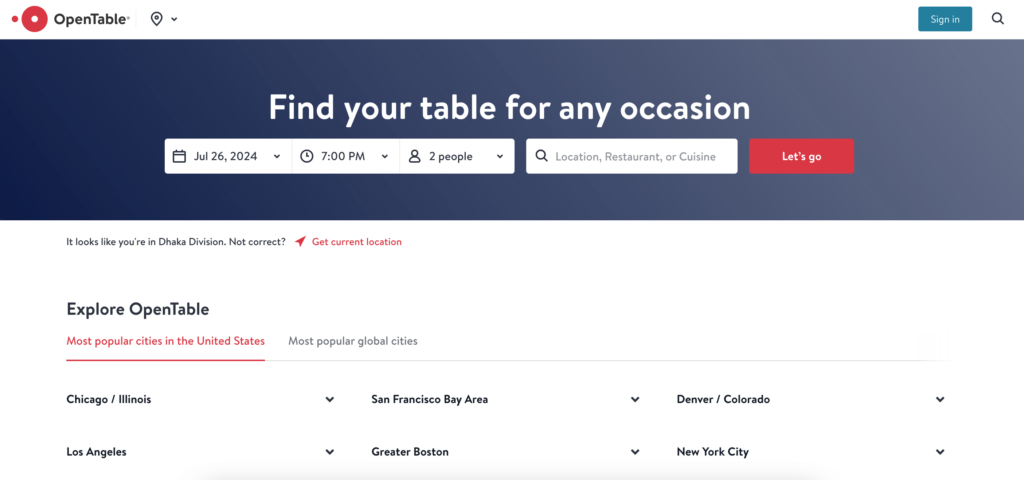
The OpenTable website is clean, smart, and well-navigated. They have a blog section that has articles related to best bars, booking restaurants, city guides, etc. Also, they have different apps for both IOS and Android.
3. Upwork
Industry: Freelancing
Upwork is a global freelancing marketplace connecting businesses with independent professionals. As a SaaS platform, it offers a robust suite of tools for businesses to find, hire, and manage freelancers.
Key features include project management, time tracking, invoicing, and payment processing. Freelancers benefit from tools to create profiles, bid on projects, communicate with clients, and manage their earnings. The platform’s emphasis on trust and security fosters strong relationships between clients and freelancers.
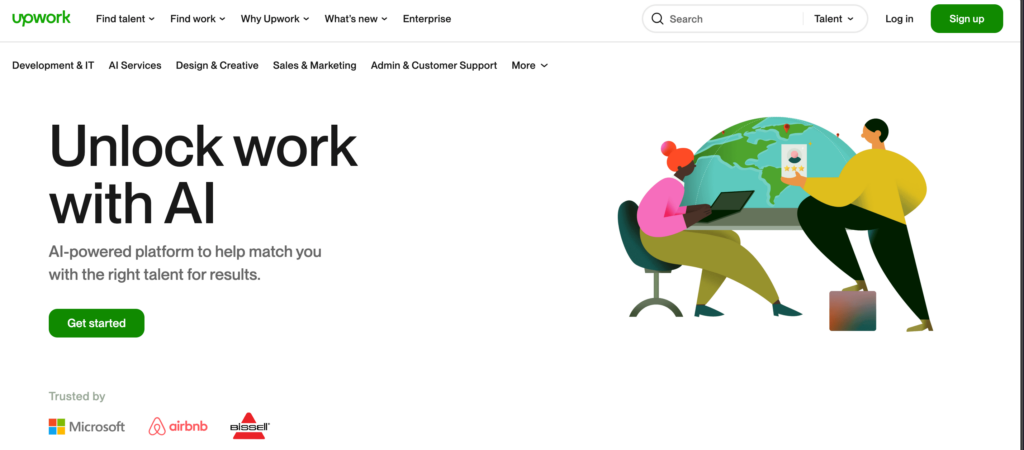
The Upwork website is very smartly designed. The marketplace is for professionals and freelancers so they have kept the design professional as well. The sections are smartly catagorised, so it is easy to find what you are looking for.
4. Etsy
Industry: Handmade and Vintage Goods
Etsy is an online marketplace dedicated to handmade, vintage, and craft items. It operates as a SaaS platform, providing sellers with tools to list products, manage inventory, process orders, and communicate with buyers.

Etsy’s unique value proposition lies in its focus on creativity and individuality, which attracts a passionate community of buyers and sellers. The platform also offers marketing and promotional tools to help sellers reach a wider audience.
Etsy’s website is what a marketplace should look like. The website will give you the right idea about what the marketplace is all about. You will find the product category section at the top of the homepage, which will help you find the product type you were looking for very quickly.
5. Airbnb
Industry: Hospitality
Airbnb is a global online marketplace for lodging and experiences. It offers a SaaS platform for hosts to list their properties, manage bookings, communicate with guests, and optimize pricing.
Guests can use the platform to search for accommodations, book stays, and access local experiences. Airbnb’s emphasis on community and trust has contributed to its rapid growth and global reach.
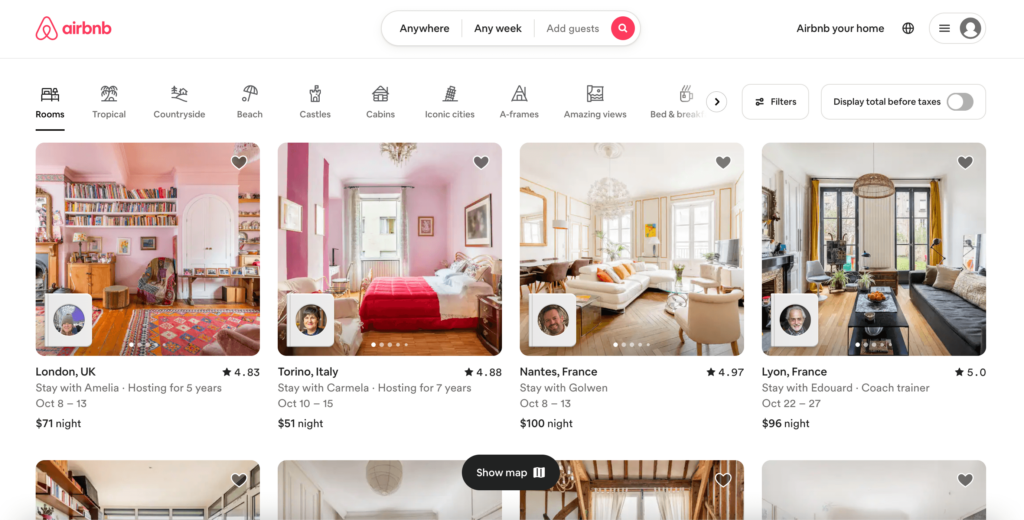
The platform also offers additional services such as Airbnb Experiences, Airbnb Plus, and Airbnb Luxe to cater to diverse traveler preferences.
Airbnb is all about its pictures. The way they present their rooms is very descriptive and the users will know exactly what they are booking. The website looks very elegant in design and the categories are nicely placed as well.
Want to Create an
Furniture Marketplace?
6. Xeneta
Industry: Ocean Freight
Xeneta is a cloud-based platform providing ocean freight rate benchmarking and market intelligence. It offers a SaaS solution for shippers, forwarders, and carriers to analyze freight rates, track market trends, and optimize pricing strategies.
The platform’s extensive database of ocean freight rates enables users to make data-driven decisions and gain a competitive advantage. Xeneta’s user-friendly interface and advanced analytics tools make it a valuable asset for the shipping industry.
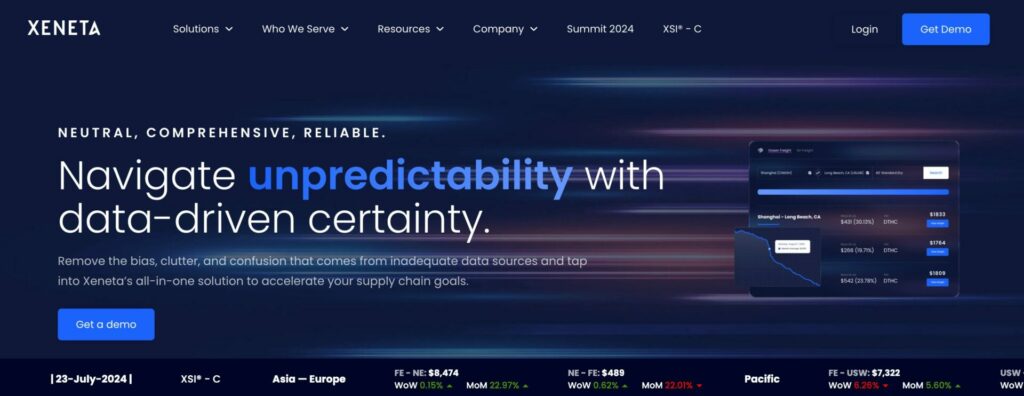
Xeneta’s website looks very clean and sharp. They have a blog section with all the relevant articles their users require. They also have podcast that gives monthly transportation insights.
7. Lawn Love
Industry: Lawn Care
Lawn Love is a tech-enabled platform connecting homeowners with local lawn care professionals. It operates as a SaaS marketplace, offering a mobile app for homeowners to easily book lawn care services.
Lawn care providers benefit from a user-friendly platform to manage their business, including scheduling, customer management, and payment processing. Lawn Love’s focus on convenience and quality has contributed to its rapid growth and expansion into new markets.
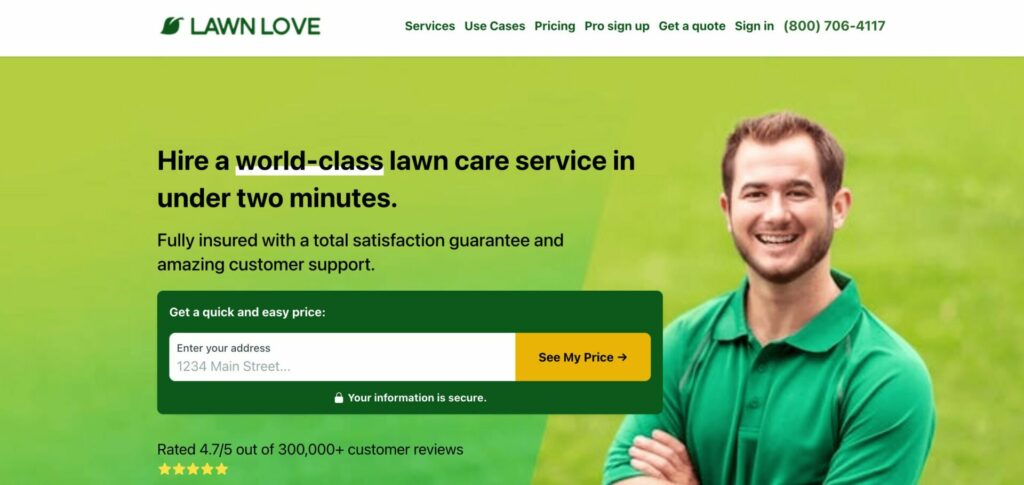
The Lawn Love website is very text-based. They also have a popular locations section in the footer which is very convenient for the users. The use case section is very helpful for the users.
8. Outdoorsy
Industry: RV Rental
Outdoorsy is a peer-to-peer RV rental marketplace. It offers a SaaS platform for RV owners to list their vehicles, manage bookings, and communicate with renters.
Renters can search for RVs by location, size, amenities, and price. Outdoorsy’s emphasis on outdoor adventures and RV lifestyle has attracted a growing customer base. The platform also provides insurance options and roadside assistance to enhance the rental experience.
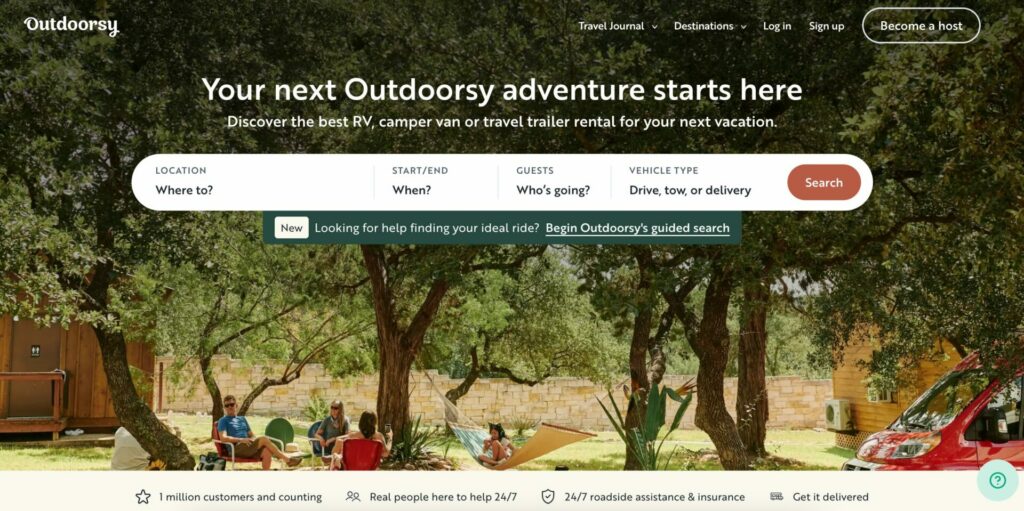
The Outdoorsy website is very sharp. They have a section that emphasizes their signature destinations. The navigation menu is focused on drop-downs so the top looks very clean. Their travel journal section has different kind of resources to help their users.
9. TaskRabbit
Industry: On-Demand Services
TaskRabbit is an on-demand platform connecting people who need help with tasks with independent contractors. It operates as a SaaS marketplace, offering a mobile app for customers to book services and a platform for taskers to find and accept jobs.
TaskRabbit’s wide range of services, including cleaning, assembly, delivery, and handyman work, has made it a popular choice for busy consumers.
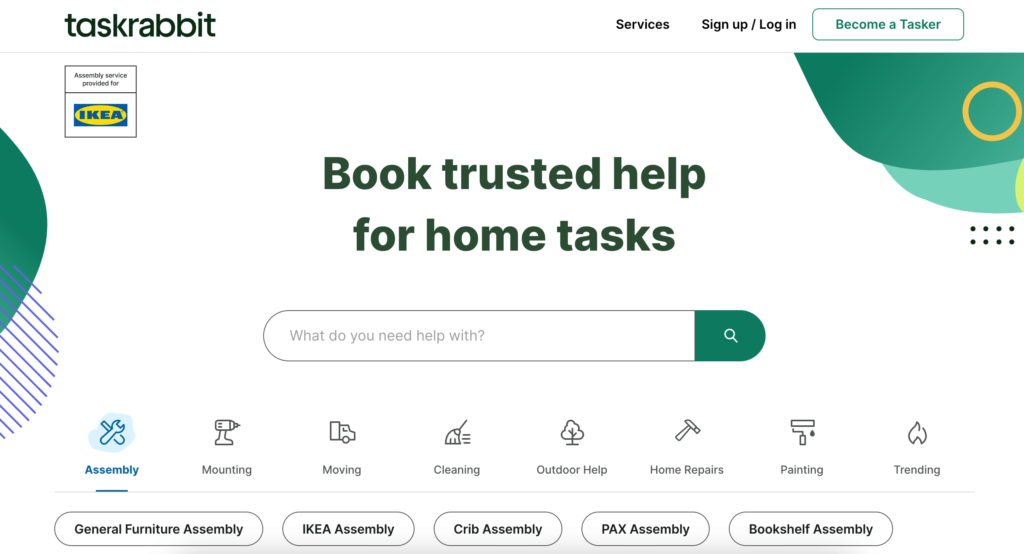
The TaskRabbit website is very to-the-point and tells you what they are about right away. Also, the different categories like Assembly, Cleaning, Mounting, Moving, etc are a nice touch. The popular projects section is also very helpful for users.
10. Instacart
Industry: Grocery Delivery
Instacart is a grocery delivery service that connects customers with personal shoppers. It operates as a SaaS platform for retailers to manage their online stores, inventory, and order fulfillment.
Customers can use the Instacart app to order groceries from their favorite stores and have them delivered to their doorstep. The platform’s emphasis on convenience and speed has contributed to its rapid growth and expansion into new markets. Instacart also offers additional services, such as Instacart Express, for unlimited free delivery.
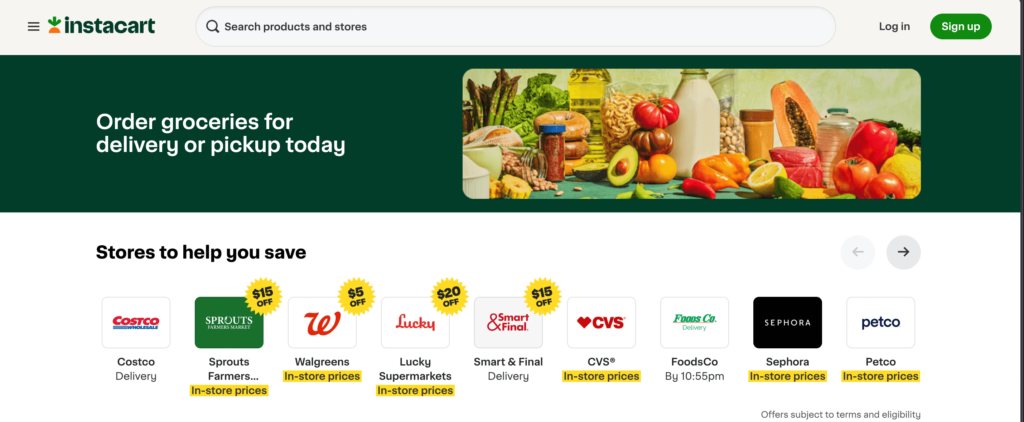
The Instacart website looks very nice. They give the first 3 orders for free if the users sign up. They also have a section where they display the popular grocery shops like Costco, Hmart, Safeway, etc.
Top Searched FAQs on SaaS Enabled Marketplace Examples
Why is the “SaaS-Enabled” model better than a standard marketplace?
The SaaS-enabled model solves the “Chicken and Egg” problem by providing a valuable tool (SaaS) that sellers use before any buyers arrive. This builds a loyal supply side first. Once sellers are locked into your software, adding the marketplace layer becomes an organic expansion rather than a forced launch.
What is the “Come for the Tool, Stay for the Network” strategy?
Coined by Chris Dixon, this strategy involves offering a standalone software tool to help businesses manage their internal operations (like scheduling or invoicing). Once they are integrated, you introduce a network effect by connecting them to a pool of buyers, making it difficult for the seller to leave your ecosystem.
How do these marketplaces typically handle monetization?
These platforms often use a dual-revenue stream. They charge a recurring subscription fee for the SaaS software (providing stable cash flow) and take a transaction commission or “success fee” from the marketplace sales. This allows the business to remain profitable even during periods of lower transaction volume.
Can a SaaS-enabled marketplace work for physical products?
Yes. While common in services (like salons), it works for products by providing sellers with Inventory Management or Wholesale CRM tools. Once the seller uses the SaaS to manage their offline or warehouse stock, the platform can aggregate that data to create a real-time B2B or B2C marketplace.
What are the biggest risks of the SaaS-enabled marketplace model?
The primary risk is “Feature Creep,” where trying to build a world-class SaaS and a high-traffic marketplace simultaneously exhausts your resources. To succeed, the SaaS tool must be powerful enough to stand alone as a product, even if the marketplace side takes longer to gain significant traction.
Start Your SaaS Powered Marketplace Today!!
SaaS marketplaces are changing how businesses work and how people shop.
By combining online shopping and software tools, these platforms have made it easier for companies to reach customers and for people to find what they need. From ordering groceries to booking vacations, SaaS marketplaces have become a big part of our lives.
As technology keeps improving, we can expect even more exciting things from these online marketplaces.
If you want to read more guides related to SaaS and SaaS powered marketplaces, subscribe to our newsletter.

Subscribe to
Dokan blog
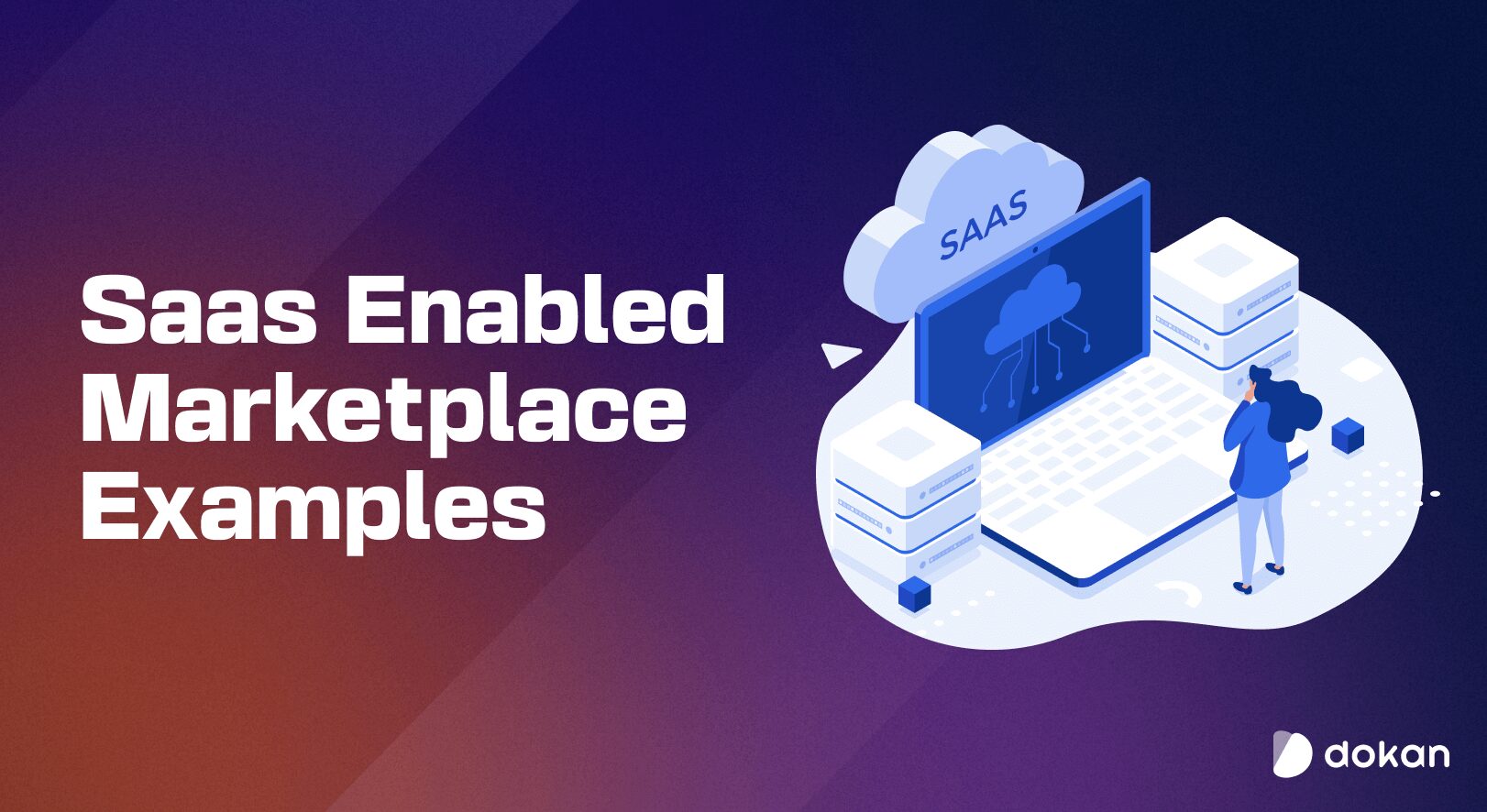
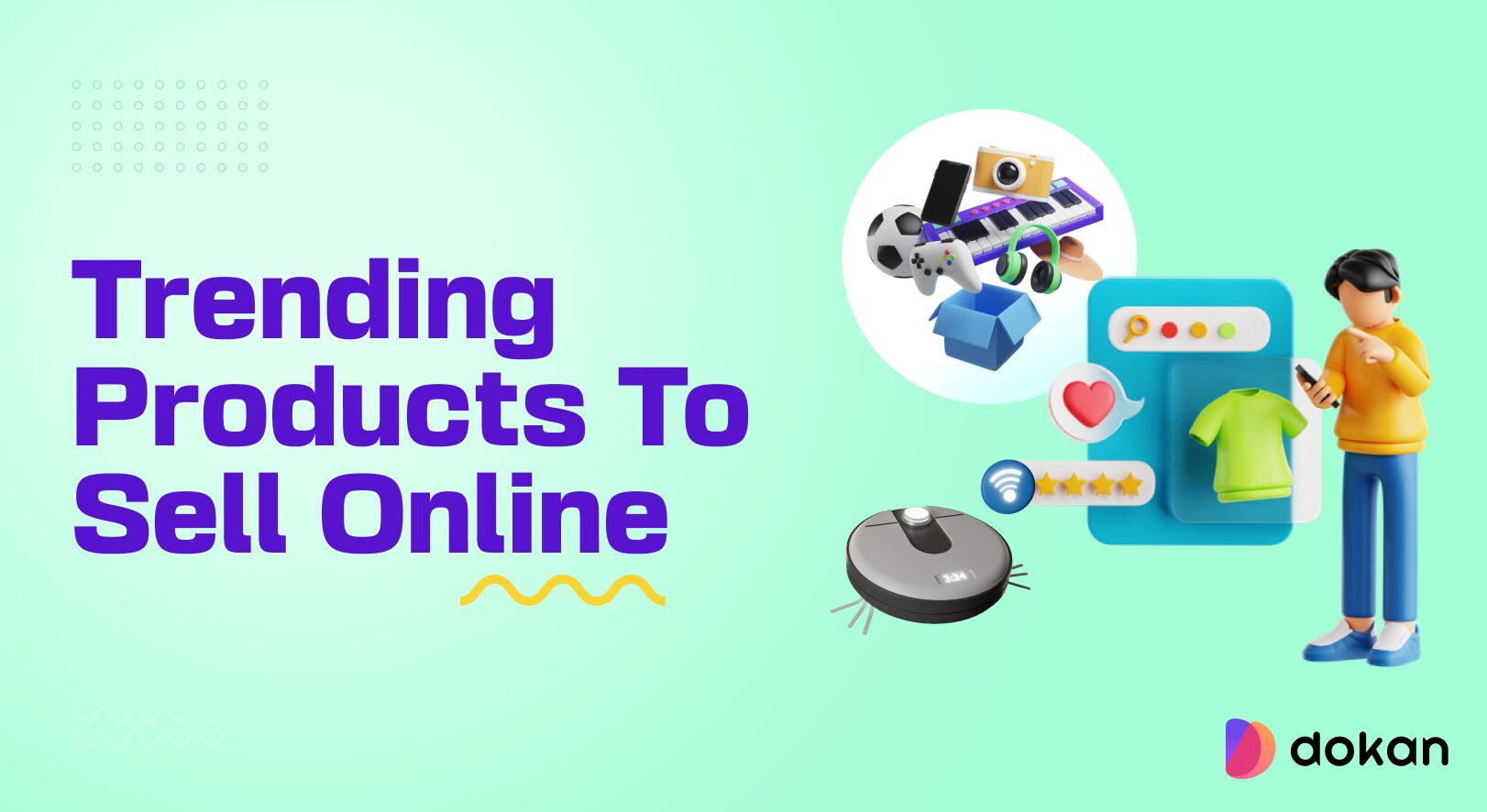

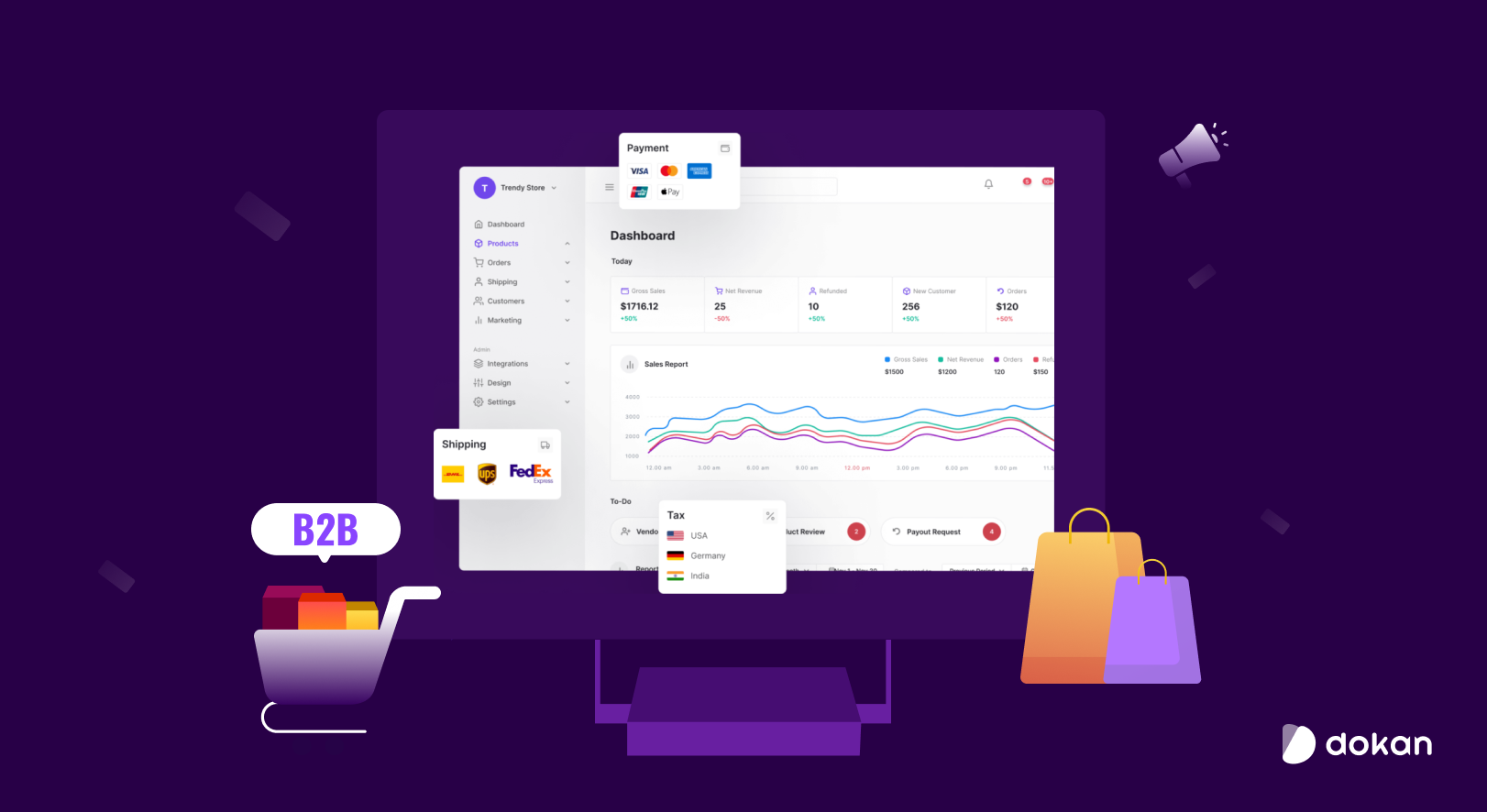
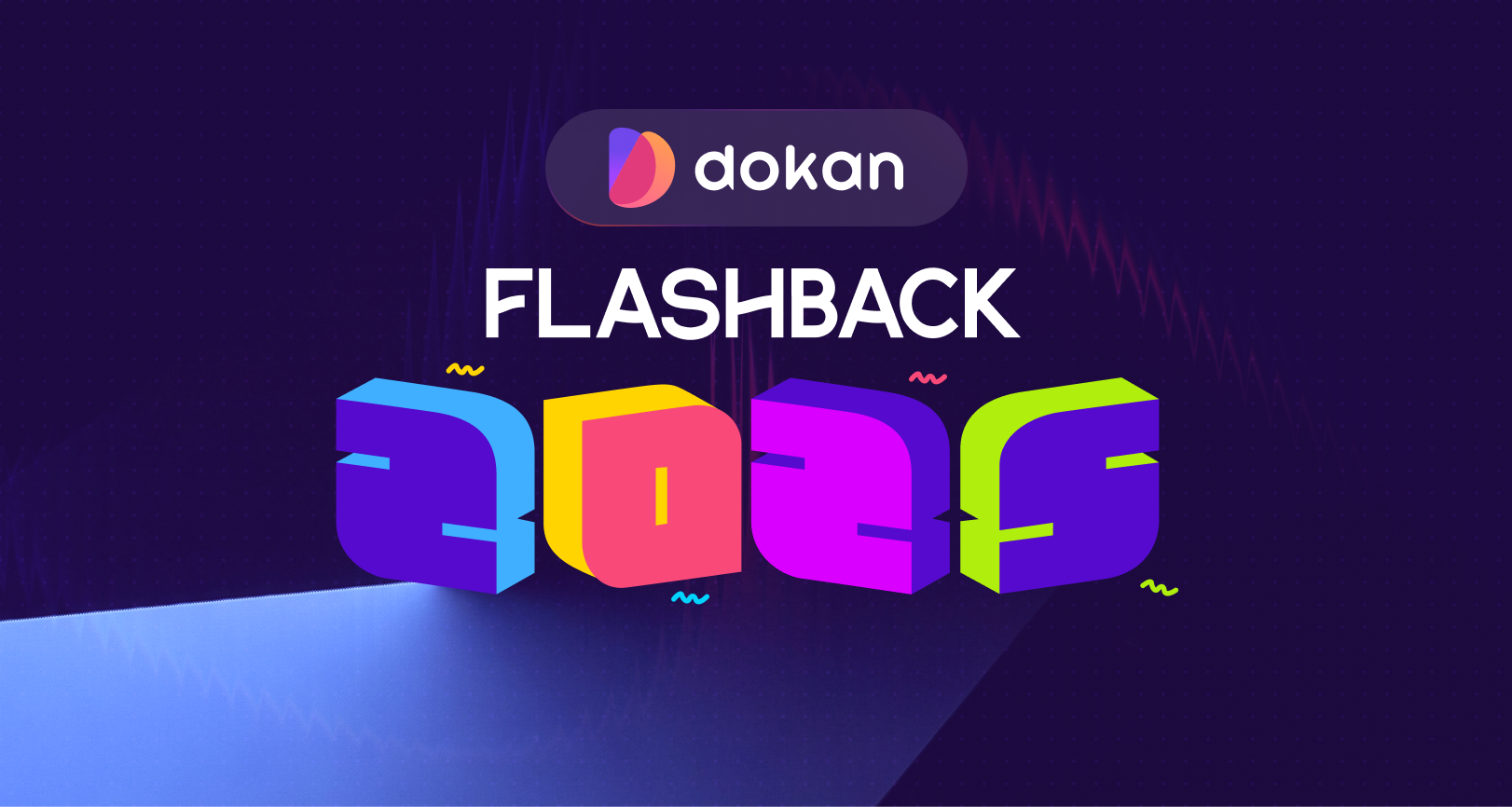

Leave a Reply